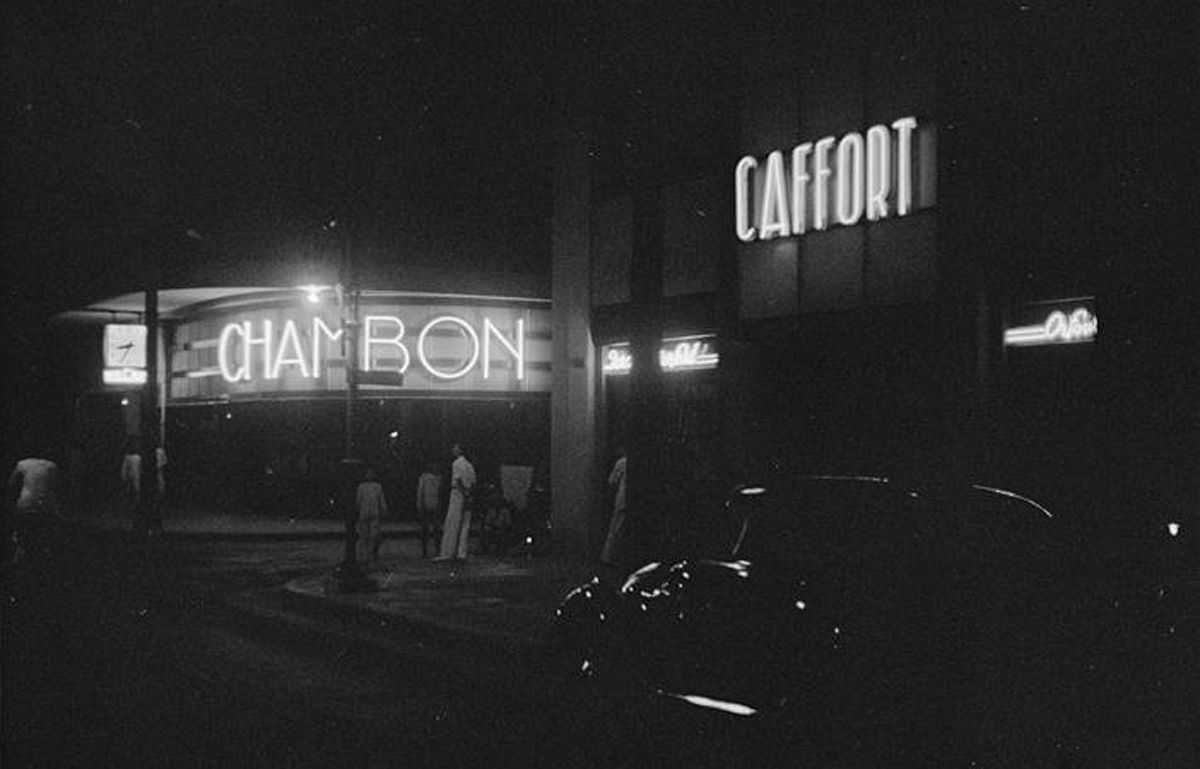I have been carrying this film around for over a quarter-century from Hanoi to Saigon to Boston and to New York.
The origin of these photographs lies in the Saigon of the early 1970s where I was a war orphan. I count myself as one of the lucky ones: as part of Operation Babylift in April 1975, I was evacuated on a Pan American Airways 747 from Tan Son Nhat to San Francisco International and, after medical processing in Harmon Hall at the Presidio, to Buffalo Niagara where I was adopted in West Seneca, New York.
As a child in western New York, I devoted hours to drawing, painting, and photography. For the last, my older brother had built a darkroom in our basement so I had access to everything I needed to learn the basics. As a student at Harvard College, I had the opportunity to study Vietnamese history with Hue-Tam Ho Tai and documentary photography with Chris Killip and David Goldblatt.

A Buddhist nun at the Perfume Pagoda (Chùa Hương, 15th Century), My Duc District, Hanoi.
Highly influenced by what I learned from them, I returned to Vietnam in 1993 with a manual 35mm camera, a basic tripod, and a lot of film. I spent countless days riding my gearless bicycle around Hanoi, shooting and burning images into my memory. Given that I was always seen with a tripod strapped to my back, my nickname amongst the few English-speaking foreigners was Tripod Boy. Beyond Hanoi, I traveled in the north to Lang Son and Hai Phong, and southward to Quang Tri, Hue, Da Nang, Hoi An, and Saigon, which had been renamed Ho Chi Minh City.
Upon my return to the United States, I started the work that you now hold in your hands. Suffice it to say, it has taken a lot longer to finish than I ever imagined. So long that the world in these images no longer exists: the one after the conflicts with France (1887-1954), America (1954-1975), Cambodia (1975-1989), and China (1979), but before the rapid increase in economic development that continues to this day.

Cockfight, Hanoi.
Many excellent photo essays have been published about Vietnam, mainly about the war years. Some are powerful but also necessarily ugly, as war is without censorship from Washington or a makeover from Hollywood. This book is not about war or famous people or infamous places. Instead, it is about ordinary people doing ordinary things in ordinary places in the spirit of Robert Frank’s The Americans, Rene Burri’s The Germans, and W. Eugene Smith’s Pittsburgh Project.

Hindu temple ruins (4th to 14th centuries) from the Kingdom of Champa, My Son.

Two ferrymen, Yen River, Hanoi.

Children playing in a courtyard, Hanoi.

Limestone mountains, Lang Son Province.

Boys spinning tops (con quay) in a courtyard, Hanoi.

Father and son barbers, Thinh and Duc, on Pho Hang Chieu, Hanoi.

Thiên Mụ Pagoda (1601), Hue.

War Memorial in Lenin Park (1961), Hanoi.
Mark F. Erickson was born in Saigon in 1972, evacuated as part of Operation Babylift in April 1975, and adopted by an American family. At Harvard College, he studied Vietnamese history and documentary photography. OTHER STREETS includes 90 duotone photographs. More photos are available on his site markferickson.com
This essay and photos originally appeared in diaCRITICS and has been republished with permission as part of an on-going collaboration between Saigoneer and diaCRITICS.














